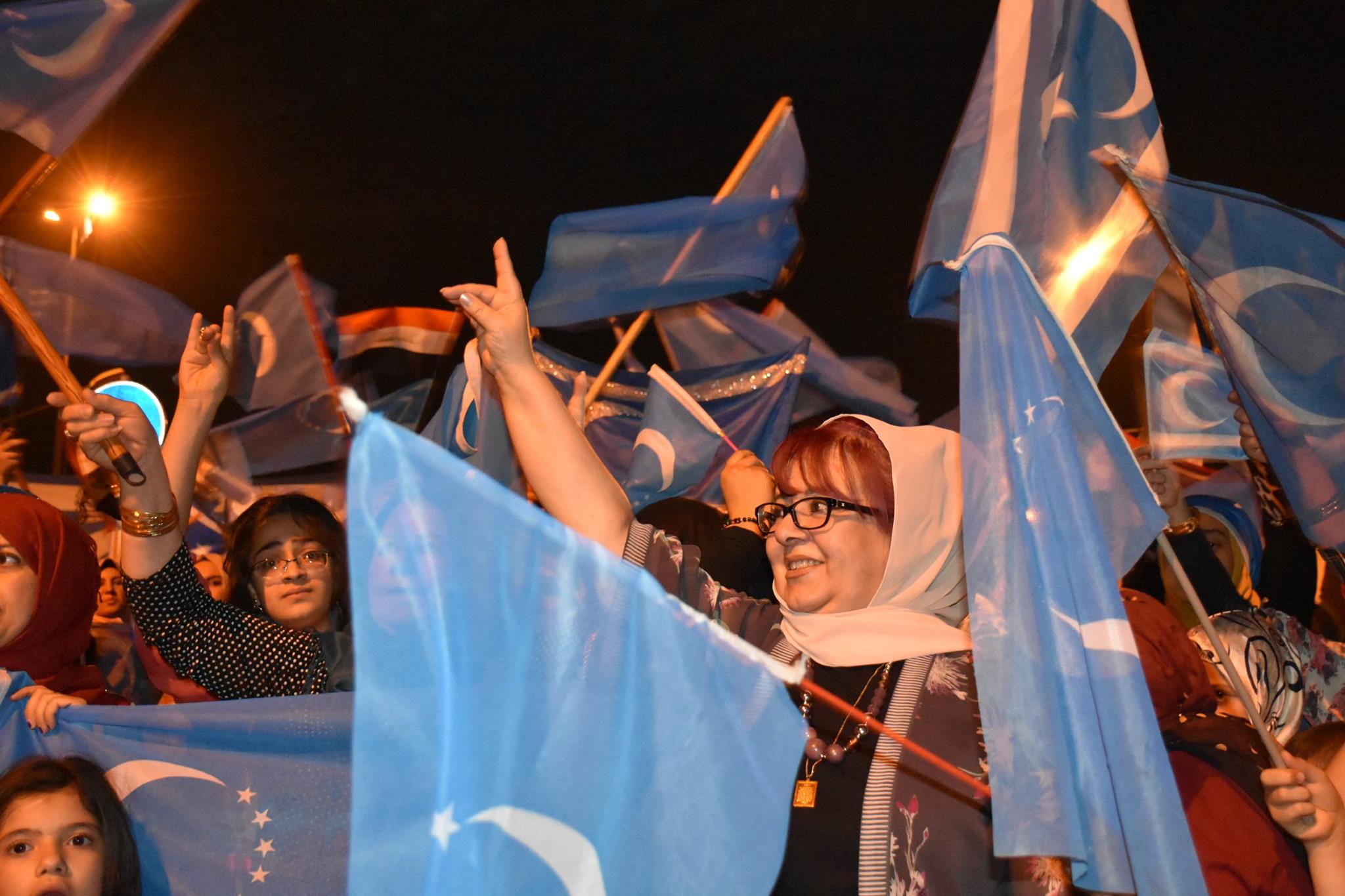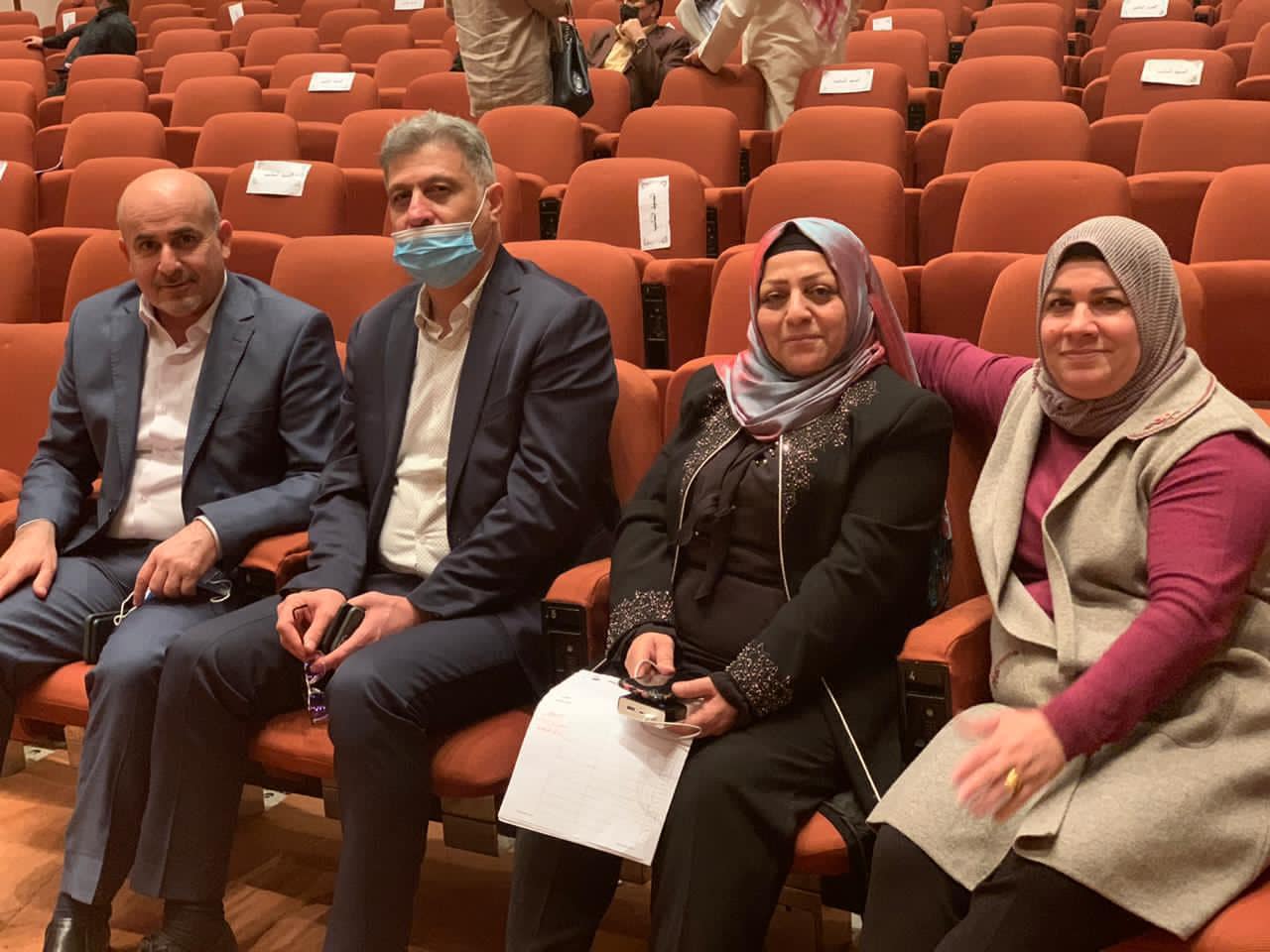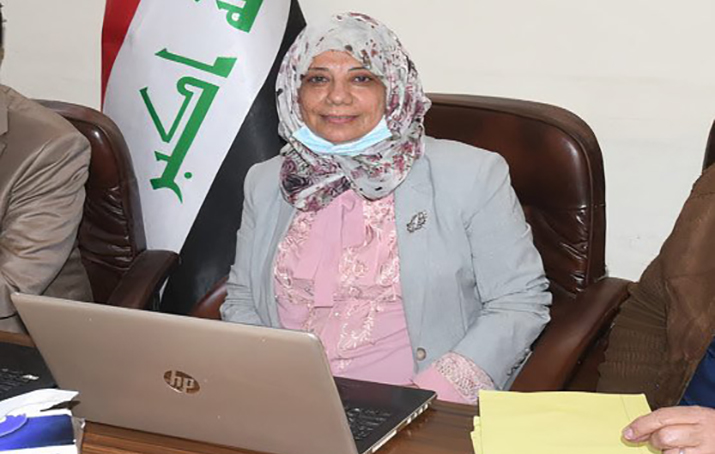Turkmen women’s rights activists believe that Turkmen women have had their share of prejudice and inequality in political representation and appointment of important government positions, due to patriarchy and marginalization by successive governments.
"Although Tal Afar, which has a Turkmen majority, is considered the largest district in Iraq, the political and functional role of women are still marginalized; Turkmen women have not been able to take their role in running government departments and institutions," said Ibtisam al-Haiyo, head of the Intercultural Dialogue for Aid and Development.
“There wasn’t even one woman among the members of the now dissolved local council, but rather it was restricted to men, as is the case now, and there is no official department run by a woman in this district," Haiyo said.
"The marginalization extended to be present in the parliament and the successive governments, as Turkmen women haven’t been granted their rights like men and other components [of Iraqi society], and we hope that the upcoming elections will be an opportunity for Turkmen women to gain the deserved position."
Turkmen women haven’t been granted their rights like men and other components [of Iraqi society]
The Turkmen, the third largest ethnic group in Iraq after Arabs and Kurds, are spread across the country, but their presence is concentrated in the areas disputed between the Federal Government and the Kurdistan Regional Government in the north of the country, such as Kirkuk province. They form a majority in the Tal Afar district, west of Mosul.
The ‘quota system’ saves Turkmen women from male domination
The former MP and head of the Turkmen Will Party, Zhala al-Naftchi said: “Iraqi society, by its psychological nature, is a male society, and of course, this matter has its reflection on Turkmen society. And this tradition is one of the biggest obstacles that stands before Turkmen women to show their full capabilities in the political arena due to not being allowed to demonstrate their capacity.”
Most of the Turkmen parliamentarians in the previous and current elections have obtained membership in the Iraqi parliament according to the women's quota system
“Most of the Turkmen parliamentarians in the previous and current elections have obtained membership in the Iraqi parliament according to the women's quota system that is still in effect in the Iraqi election law with all the amendments that were made to it. But this system is still in effect in the aforementioned law.”
The reason that female Turkmen candidates do not obtain as many votes as their male counterparts is that some are “seeking to marginalize and obliterate the role of Turkmen women,” for their self-interest as they want to “monopolize the Turkmen representation in parliament” for themselves.

Regarding her personal experience, al-Naftchi says that she faced many challenges during the electoral campaigns that she ran, and since 2010, when she obtained a parliamentary seat in accordance with the quota system.
However, in the 2018 elections, she wasn’t successful when she ran as part of the al-Nasr Coalition list, as “some male Turkmen politicians sought to use all ways and means to exclude me from running on the Turkmen Front’s Kirkuk list for fear of competition,” Naftchi claims.
She faced the same issue when she formed the Turkmen Will Party at the end of 2017, as she faced many difficulties and challenges from those who worked to bring her down, personally and politically.
Turkmen women are able to fulfil their role if given the opportunity
38-year-old Rabab Ismael, a Turkmen activist, stressed in her interview with KirkukNow that "Turkmen women have shown their competence in different eras and in various fields, and they are able to run state institutions, but they are waiting for the door to opened for them to play their role in the political arena, be it in parliament or in the government."
"Iraq is constitutionally obliged to the women's quota system in parliament, as the constitution specified 25% for women's representation, and this temporary solution has tangibly contributed to the involvement of Iraqi women of various ethnicities and religions in politics over the past years."

Among the current 8 Turkmen members of parliament, there two women: Layal Muhammad Ali (al-Fath Alliance - Nineveh), and Khadija Ali Abbas (Turkmen Front - Kirkuk).
The total number of Turkmen seats in Parliament is 8 (out of 329), where the Turkmen Front, led by Arshad al-Salehi, holds 3 seats, and the Turkmen Bloc has 5 seats.
Before the authorities, society violates their rights
Hayman Ramzi, head of the Tulay Organization for Turkmen Affairs, holds the Turkmen community itself responsible for the failure of Turkmen women to obtain their rights and their role in government institutions.
the Turkmen community itself hasn’t done us justice and the deprived us of our role and still does in getting opportunities in assuming leadership positions
“Before we hold the federal government and the Kurdistan Regional Government responsible for the lack of equality for Turkmen women, we must acknowledge that the Turkmen community itself hasn’t done us justice and the deprived us of our role and still does in getting opportunities in assuming leadership positions.”
"The defect may lie in the community itself, not in others. Even if a Turkmen woman is chosen for a position, the basis is party affiliation, not competence and experience.”
Turkmen women entered politics in Tal Afar after 2003, and four of them reached parliament in multiple electoral rounds. They are: Iman Muhammad Yunis al-Salman, Nahla Hussein al-Hibabi, Sajida Muhammad Yunis al-Afandi, and Layal Muhammad Ali al-Bayati.

The first Turkmen to assume a ministerial position
In a move that was described as “positive,” the media department of the Iraqi Parliament announced on 15 December that the Parliament voted to choose Hayam Ni’ma as Minister of State, and that she was sworn in as a representative of the Turkmen community in the cabinet of Mustafa al-Kadhimi. The cabinet of Adel Abdulmahdi (2018-2019) didn’t have any Turkmen members.
al-Naftchi considers the appointment of Hayam Ni’mat as State Minister, representing the Turkmen community in Iraq in the current cabinet, “a step in the right path.”
“She is one of the elite technocrats in the country and is considered one of the distinguished, competent individuals in the field of planning and financial control. The turning point is that she has become a minister today, representing the Turkmen community in the executive authority.”
The ascension of a Turkmen woman to the Minister of State the al-Kadhimi government is a positive step
Ramzi added: “The ascension of a Turkmen woman to the Minister of State the al-Kadhimi government is a positive step, and it would have been crowned with bigger success if it had been an expert Turkmen woman who is in contact with the Turkmen community and mingles with them in practice.”
Turkmen women seek to break the male domination and the marginalization by the successive governments in order to represent themselves and play their role in all sectors, including politics and assuming senior governmental positions.




